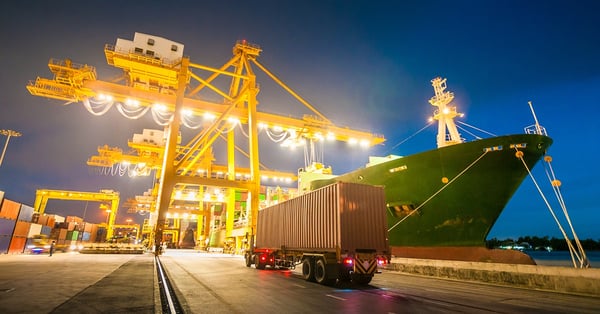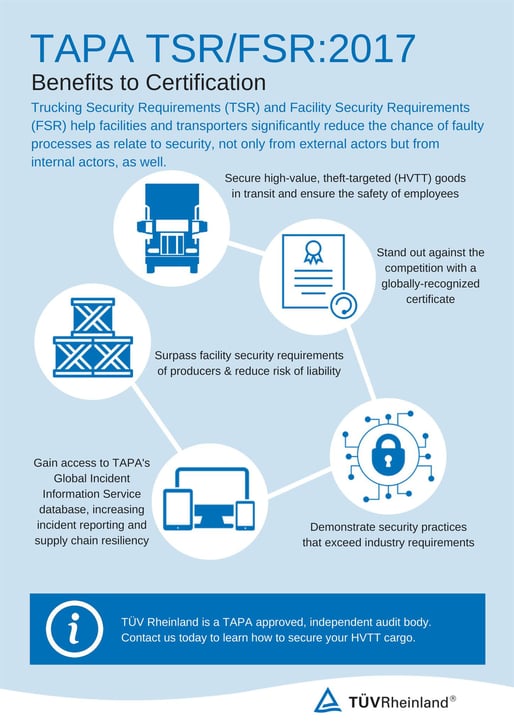
The Transported Asset Protection Association (TAPA) was founded in 1997 as a voluntary association to establish freight security requirements in the global supply chain. Today, the association operates around the world, with over 600 members of global manufacturers, carriers, insurers, and service providers.
TAPA offers its members access to the Global Incident Information Service (IIS) database, increasing criminal activity reporting and resulting in more resilient supply chains. TAPA defines two primary standards to protect high-value, theft-targeted (HVVT) cargo within the transportation supply chain: Trucking Security Requirements (TSR) and Facility Security Requirements (FSR).
By becoming certified under TAPA, transport companies and warehouse facilities can be comfortable knowing they have the best possible processes in place so that supply chain workers, facilities, transport vehicles, and the items within them remain safe and secure.
In March 2017, TAPA released revised editions of both the TSR and FSR standards. TAPA global Security Standards are reviewed and revised as needed every three years in order to keep up with evolving logistics operations and with changing criminal threats.
Main Improvements to the Latest TSR and FSR Standards
The 2017 TSR and FSR updates are intended to close a number of security and safety gaps that had been left open in previous iterations. Overall, the 2017 versions of TSR and FSR make it much easier for logistics and warehousing service providers to understand how to become certified, and how to operate within certification standards.
|
Changes to FSR |
Changes to TSR |
|
|
TAPA-certified facilities and transporters significantly reduce the chance of faulty processes related to security, not only from external actors but from internal actors, as well. TAPA certification leads to better performing processes, increasingly skilled personnel, reduced potential for internal shrinkage, and more sustainable customer relationships.
In fact, more and more suppliers of HVTT goods now require their shipping and storage providers be TAPA-certified. In other words, investment in certification translates directly to a profitable competitive advantage.
Here are some of the main benefits to certification:
- Achieve a level of security recognised throughout the HVTT goods industry
- Meet the requirements of HVTT producers that require TAPA certification
- Demonstrate to all clients they meet and exceed industry security requirements
- Stand out against the competition
- Reduce risk of company liability with documented safety standards
- Benefit from fast audit times and long-standing experience
- Ensure compliance with local governmental and legal requirements

The LSP/Applicant can perform their own inspection/audits under TAPA, but only an assessment by an Independent Audit Body can certify a facility to FSR Level A or Level B, or a trucking fleet to Level 1 or Level 2, the highest levels of security certification for TAPA.
Certification to both FSR and TSR is valid for 3 years after IAB validation has been completed.
For more information, speak with our experts:



